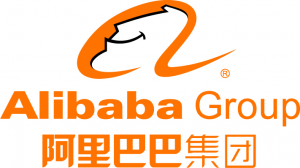E-COMMERCE: Alibaba Gets Rare Victory in US Shareholder Suit
Bottom line: Alibaba’s victory in a shareholder lawsuit is partly justified due to its pre-IPO disclosure that piracy is a major risk for the company, but it still should have disclosed a recent government report sharply criticizing it on the matter.

E-commerce giant Alibaba (NYSE: BABA) is a master at influencing public opinion through its own hype, but is far less successful with government officials who often view its aggressive ways with more skepticism. With that background in mind, the company’s new courtroom victory in a shareholder lawsuit looks like a refreshing nod of approval from a government source, setting it apart from the usual cheers from fans of the company’s stock. I would probably agree with that view, even though in this case I’m not sure I completely agree with the judge’s decision.
This particular case dates back more than a year ago, when Alibaba faced the first major crisis after its record-breaking $25 billion IPO in the fall of 2014. That crisis began when one of China’s main business regulators, the State Administration for Industry and Commerce (SAIC), released a report critical on the large trafficking in fake goods on Alibaba’s popular Taobao site, a C2C marketplace similar to eBay (Nasdaq: EBAY).
Alibaba’s shares sank nearly 13 percent over 2 days after word of the report came out, sparking a prolonged sell-off that has seen the stock stagnate since initially surging after the IPO. It was later disclosed that the SAIC actually finished its report and showed it to Alibaba in July 2014, or 2 months before the company’s New York IPO.
That fact became the source of the shareholder lawsuit, since some investors argued that Alibaba knew about the report before the IPO and thus should have disclosed it as a risk factor in its prospectus. But the New York judge hearing the case disagreed, saying the prospectus contained numerous references to regulatory risks that Alibaba faced for failing to adequately police its sites for fakes. (English article; Chinese article)
The judge wrote that Alibaba “did not downplay its problem with counterfeit sales on its platforms or the likelihood of an administrative action against it.” Alibaba’s current investors didn’t seem too impressed by the ruling, with the company’s shares closing up just slightly in the latest trading session on Wall Street. At their current level they are now about 25 percent below where they traded before the SAIC scandal broke.
Symbolic Victory
The fact of the matter is that Alibaba is a hugely cash-rich company, so even a loss in this particular case probably wouldn’t have cost it very much. But the decision comes as a moral victory for Alibaba, which has found itself in far more negative than positive headlines involving government officials and outside organizations. The latest of those saw the company recently booted from a major anti-piracy group in the US, after its admission prompted some members protest and even quit. (previous post)
Personally speaking, I have mixed feelings about this ruling. In many ways it represents how Alibaba has become quite a slick company, after hiring a large contingent of seasoned US professionals to improve its image and reputation in Washington. Still, the company’s legal team probably faced an even more experienced group of lawyers in the shareholder lawsuit, so both sides were probably well represented.
I never read the Alibaba prospectus, but have no difficulty believing the piracy issue was raised numerous times in the report’s section on risk. Still, it does seem like disclosure of a highly critical government report so close to its IPO might be worth a separate mention in the prospectus. At the end of the day I believe shareholder do need to be protected from manipulative companies, and this seems to fit that definition.
But I also have quite a bit of scorn for law firms that do nothing but wait for stock prices to fall so they can file big lawsuits. Accordingly, I am not at all disappointed that in this case those law firms won’t get any reward for the extensive time and preparation that they probably spent on hopes for a big payout in the case.
Related posts:
- E-COMMERCE: Anti-Piracy Group Pulls Out Welcome Mat from Under Alibaba
- E-COMMERCE: Alibaba in $185 Bln Identity Crisis with SoftBank Sale
- E-COMMERCE: Gucci Scorns Alibaba’s Peace Offering
- Today’s top stories
